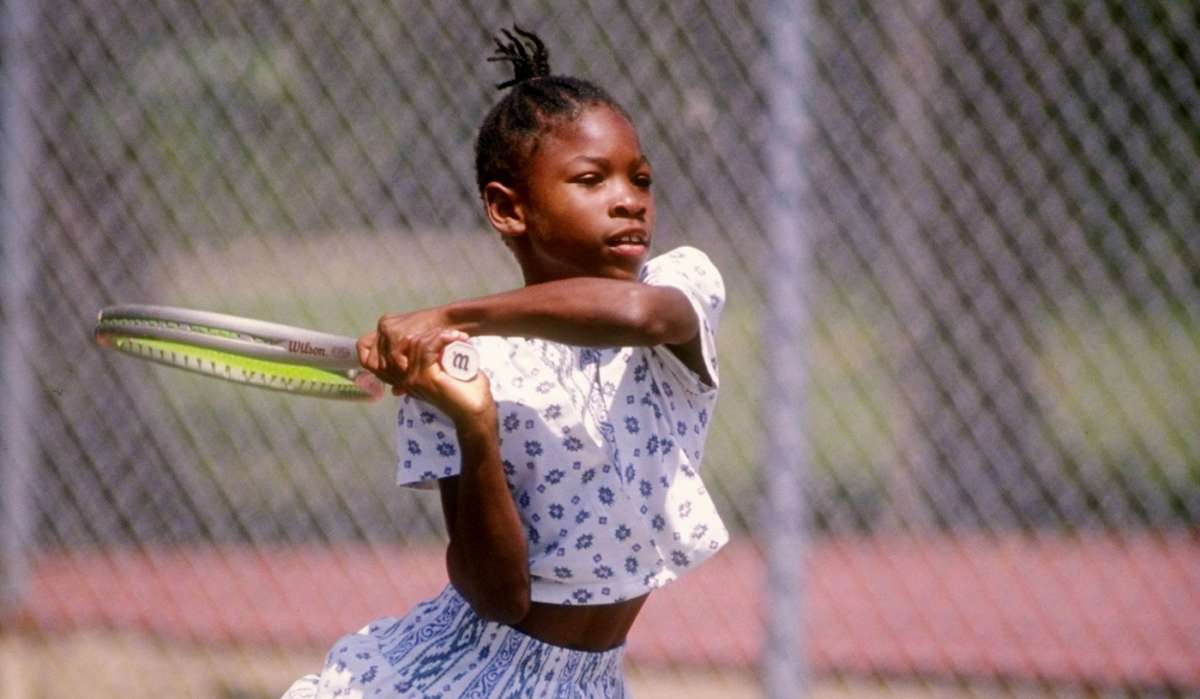Serena Williams’ mindset before winning Grand Slams isn’t just a tale of pre-match rituals—it’s the mental armor that helped her become the most dominant force in women’s tennis. Do you know did a young girl from Compton rose to global icon status? What shaped her into a record-breaking athlete with an unmatched mental game? And how did she stay focused through decades of pressure, media scrutiny, and fierce competition?

Serena’s story is more than just trophies—it’s about grit, evolution, and how her mind became her greatest weapon.
Why Serena Williams Is A Tennis Legend
Before diving deeper into her powerful mindset, let’s understand the foundation of her fame. Serena Williams didn’t just win titles—she redefined the sport. From her explosive serve to her mental resilience, she stood in a league of her own.
Here are key stats and facts that explain why Serena is hailed as a legend:
Born: September 26, 1981
Hometown: Saginaw, Michigan (raised in Compton, California)
23 Grand Slam Singles Titles – Most in the Open Era
Known for the most dominant serve in women’s tennis
Ranked World No. 1 for a total of 319 weeks

Famous for her mental toughness in high-pressure matches
Played competitively for over two decades—an unmatched feat
Olympic Gold Medalist (4 times)
Off the court: Advocate for gender equality, women’s empowerment, and Black representation.
Serena didn’t just win. She transformed women’s tennis with her power, passion, and unshakable belief in herself. Serena Williams played professionally for 20 years.
The Focused Mind of a Champion
To understand Serena Williams’ mindset before winning grand slams, you need to look beyond her physical game. Serena approached each tournament with intention, mental preparation, and emotional control. She meditated, visualized victory, and developed routines that kept her centered.

Her coach and sister Venus often spoke about her mental clarity before matches. Serena knew that championships weren’t just won on the court—they were won in the mind days before the first serve. If you want to understand what fueled her dominance, you have to look at Serena Williams’ mindset before winning grand slams. Serena believed that matches were won before the first serve was ever hit. Her preparation wasn’t just physical—it was deeply mental.
She famously once said, “Tennis is mostly mental. You win or lose the match before you even step on the court.”
How Serena Williams Stayed Mentally Strong
Even when injured, doubted, or counted out, Serena Williams found strength in her self-belief. Here’s how she stayed mentally strong:
She practiced positive affirmations before and during matches
She used breath control and meditation to stay calm under pressure
She kept a journal to track her emotions and goals

She leaned on a strong support system of family, coaches, and fans
She focused on growth—learning from every match, win or lose
This ironclad mindset helped her win matches from behind, fight through injuries, and compete at the highest level well into her late 30s.
A Legacy That Transcends Tennis
While Serena Williams’ mindset before winning grand slams helped her shatter records, her influence goes far beyond the court. She inspired a generation of young girls, especially Black girls, to dream big in a sport where they rarely saw themselves. Her fashion statements, business ventures, and advocacy work made her a global icon.
Serena’s voice has been loud and clear on issues such as equal pay in sports, Black maternal health, and women’s rights. She used her platform to create change, not just headlines.

Final Thoughts: More Than Just Grand Slams
The world often measures Serena Williams by her 23 Grand Slam titles—but her real strength lies in her mental dominance, her will to rise, and her refusal to ever be boxed in. Serena Williams’ mindset before winning grand slams wasn’t just about focus—it was about belief, identity, and purpose. And that’s what made her not just a tennis champion, but one of the greatest athletes of all time.
5 Hidden Habits from Carl Lewis’ Track Beginnings That Shaped His Inspiring Olympic Legacy

